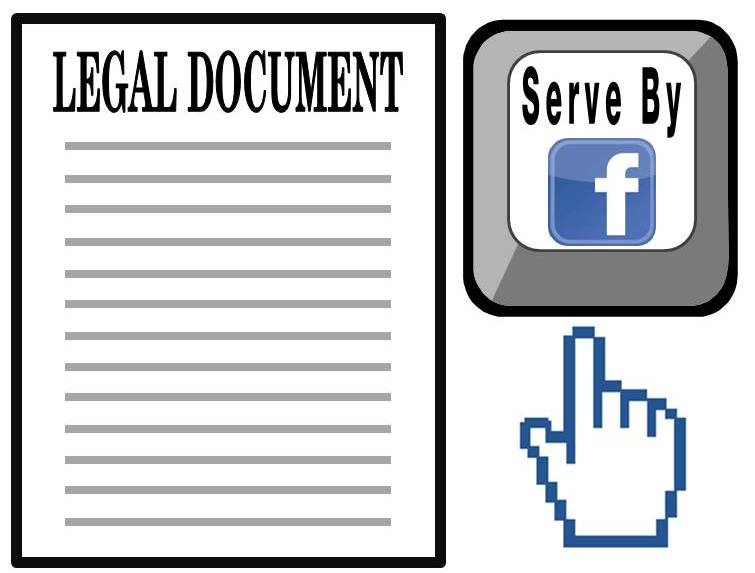By: Jeffrey Lapin

On March 7, 2013, United States District Court Judge Paul Engelmayer, of the Southern District of New York, ordered that the Federal Trade Commission (FTC) can serve legal documents upon five defendants residing in India by email and Facebook. Courts in England, Australia and New Zealand have already permitted service via Facebook. This decision is likely the first time a United States court has approved service by Facebook.
SERVICE OF COMPLAINT AND SUMMONS
The Federal Rules of Civil Procedure ("FRCP") are rules created by the United States Supreme Court. Rule 1 states that they "govern the procedure" in almost all civil actions and proceedings. After a lawsuit is filed the plaintiff must serve the defendants with a copy of the Complaint (the lawsuit) and a summons, which is basically a notice that the defendant is being sued and in which court the lawsuit has been filed. FRCP Rule 4(f) governs service of summons on a person in a foreign country. This Rule states, in part:SERVING AN INDIVIDUAL IN A FOREIGN COUNTRY. Unless federal law provides otherwise, an individual ... may be served at a place not within any judicial district of the United States:Both the United States and India are signatories to the Hague Service Convention. Federal court decisions have stated that constitutional due process requires that any method of service be: reasonably calculated, under all circumstances, to apprise interested parties of the pendency of the action and afford them an opportunity to present their objections.
(1) by any internationally agreed means of service that is reasonably calculated to give notice, such as those authorized by the Hague Convention on the Service Abroad of Judicial and Extrajudicial Documents; ...(3) by other means not prohibited by international agreement, as the court orders.
SERVICE VIA FACEBOOK
Without getting into the specifics and technical details of the case, Federal Trade Commission v. PCCare247 Inc., et. al., the issue that Judge Engelmayer had to decide was whether the FTC could serve 5 defendants, who were in India, by Facebook and email as efforts to serve them by other methods had failed. Judge Engelmayer noted that service by email had previously been determined to be a valid method to serve defendants and that the defendants were aware of the lawsuit. The FTC was not trying to serve Summons on these defendants but the Court used FDCP Rule 4(f) to determine whether the requested method of service would be permitted. Service by Facebook would work, as described by the Judge:The FTC would send a Facebook message, which is not unlike an email, to the Facebook account of each individual defendant, attaching the relevant documents. Defendants would be able to view these messages when they next log on to their Facebook accounts (and, depending on their settings, might even receive email alerts upon receipt of such messages).Judge Engelmayer noted that there could be constitutional due process issues with service by Facebook as "anyone can make a Facebook profile using real, fake, or incomplete information" but that the FTC had proven that the Facebook accounts the FTC wanted to send the documents to were actually operated by and likely to be received by the defendants. He opined:
The Court acknowledges that service by Facebook is a relatively novel concept, and that it is conceivable that defendants will not in fact receive notice by this means. But, as noted, the proposed service by Facebook is intended not as the sole method of service, but instead to backstop the service upon each defendant at his, or its, known email address. And history teaches that, as technology advances and modes of communication progress, courts must be open to considering requests to authorize service via technological means of then-recent vintage, rather than dismissing them out of hand as novel.Ultimately, the Judge permitted the defendants to be served by Facebook and email. Read the Court’s Opinion and Order
CONCLUSION
The law always seems to trail technology. Social media has become a pervasive method of communication. It is good that courts are starting to catch-up and permit service by methods not even thought of when the original rules about service were adopted. The only concern, as noted by Judge Engelmayer, is the anonymity that social media permits. It is imperative that new methods of service, like via Facebook, ensure due process protections.Sources
Administrative Office of the U.S. Courts on behalf of the Federal Judiciary: Federal Rules of Civil Procedure - Rules 1 and 4 (http://www.uscourts.gov/uscourts/rules/civil-procedure.pdf)
Opinion and Order: Federal Trade Commission v. PCCare247 Inc., et. al. - Case No. 12 Civ. 7189 (PAE)
OTHER RECENT POSTS
- GHSA Report: Teen Driver Deaths Increased in 2012
- The People Versus Former U.S. Olympians
- FDA Regulating Internet Metadata and Keywords
- Study Finds Alcohol Deaths Drop After Price Increase
ABOUT LAPIN LAW OFFICES
Lapin Law Offices represents injured, abused and disabled clients in Lincoln and throughout Nebraska. We pride ourselves in representing our clients with caring, passion and dedicated. We offer a free consultation anytime (24/7) at 402-421-8033 (Lincoln) or 888-525-8819 (Toll Free). You can also submit your case or question online (Contact Us).

No comments:
Post a Comment